Iran Military Commanders Claim Progress In Building Drones
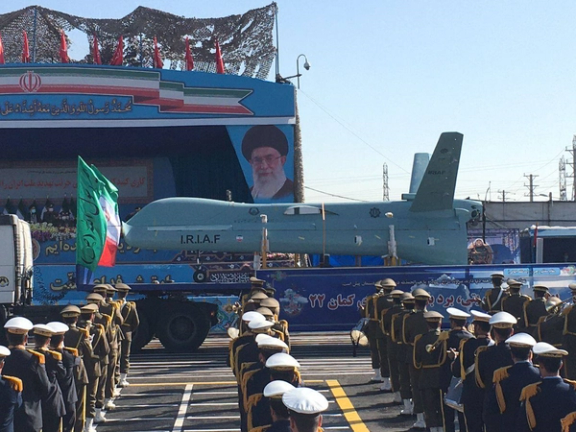
Iran’s Revolutionary Guard (IRGC) and the traditional Army commanders on Tuesday claimed they have achieved progress in building unmanned aerial vehicles.

Iran’s Revolutionary Guard (IRGC) and the traditional Army commanders on Tuesday claimed they have achieved progress in building unmanned aerial vehicles.
IRGC Commander-In-Chief Major General Hossein Salami and Army Commander-in-Chief Major General Abdolrahim Mousavi, speaking at a ceremony described the country’s drone industry as “valuable and empowering”.
“Manufacturing UAVs with its various technologies is very significant today in both the Army and the IRGC”, Salami said.
Praising the self-sufficiency in military technology in the Army, especially in the Air Force, Mousavi said the Army has made good progress in building fighter jets and helicopters and their components.
Most of Iranian-made fighter jets, such as Kowsar, Saeqeh, and Azarakhsh, are mainly based on the American Northrop F-5, with some analysts describing them to be inefficient as a weapon but having potential for training a new generation of fighter pilots.
The US and Israel pioneered the use of drones in the Middle East, although China has now become a major supplier, selling to Egypt, Iraq, Saudi Arabia, and the United Arab Emirates. Iran and Turkey have developed indigenous production.
The two military commanders also stressed the importance of closer cooperation and focusing their efforts on areas such as electronic warfare – using electromagnetic spectrum or directed energy to an enemy or impede enemy assaults.
Iran showcased some of its latest drones Monday on Army Day, including the "strategic multi-functional combat drone" Kaman-22 and the single-engine multirole tactical drone Ababil-5.

In a first-ever revolt by Iranian government employees against a cabinet minister, hundreds gathered on Tuesday to reject Hojjat Abdolmaleki's leadership.
Twitter users in Iran reported that some employees also gathered at the ministry's parking area and courtyard chanting slogans against Labor Minister Hojjat Abdolmaleki who had told the press in February that he had fired over 1,000 employees.
Pictures of the protest published by Iranian news outlets including Rouydad24 website, show the employees waiting for the minister to come forward and answer their questions. However, he did not leave his office at the ministry.
Employees also accused Abdolmaleki of launching a publicity to show off his "achievements" despite criticisms by staff and the media over his populist behavior. Some Twitter user published a publicity poster, adding that Abdolmaleki has used the ministry's funds to showcase his performance. Several members of the Iranian parliament have said that Abdolmaleki will be one of the first Raisi ministers to be impeached as soon as the parliament’s leadership allows impeachment motions to be tabled and go forward.
Reports from Tehran say Deputy Labor Minister Mohammad Reza Hosseini tried to calm the protestors, but his effort was not successful. The employees chanted "Payments with Justice" demanding fair pay.
One employee told Rouydad24: "It is ironic that the staff of other government and private companies come to the labor ministry to voice their grievances while its own employees have nowhere to go to seek relief for their grievances."
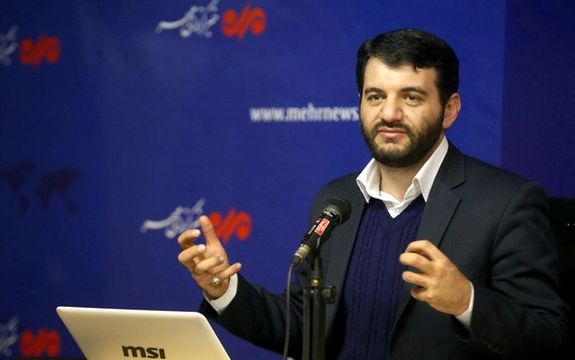
Another employee asked: "How can the labor minister manage the situation of unemployment in the country while he cannot sort out the problems in his own ministry?" He reminded that Abdolmaleki promised to quickly create millions of jobs in Iran at low cost, but it never materialized.
Other employees criticized the minister and his aides for putting on a show rather than working to solve staff problems. One employee told reporters that Abdolmaleki made no plans to tackle unemployment in Iran since he assumed office eight months ago. Earlier, Abdolmaleki had said in an odd comment that "Creating jobs was not among the responsibilities of the labor ministry."
Criticism of other economic ministers of the Raisi administration has also been on the rise during the past months. Lawmaker Behrouz Mohebbi on Tuesday harshly criticized Industry Minister Reza Fatemi Amin who is also on the parliament's impeachment list, charging that he has not met any one of the many promises he made before joining the government.
Mohebbi further charged that the managers of car manufacturing companies affiliated with the Ministry of Industry drive foreign cars and do not care about the rising price and falling quality of Iranian-made cars. "If they used Iranian cars, they would have made efforts to improve the quality of domestic products at least for their families' safety," he said.
Mohebbi also criticized the minister for failing to control the car market. According to the media last week, the price of a basic old model compact car called Pride, rose by 400 million rials ($1,600) overnight and reached 2 trillion rials.
Mohebbi said, "when Fatemi Amin's credentials were being reviewed at the parliament, he promised to put an end to the monopoly of the two car makers affiliated with the ministry, to boost production and to improve quality. Some eight months on, none of these promises have materialized." He reminded Fatemi Amin that even Supreme Leader Ali Khamenei has acknowledged that people are unhappy about his ministry's performance.
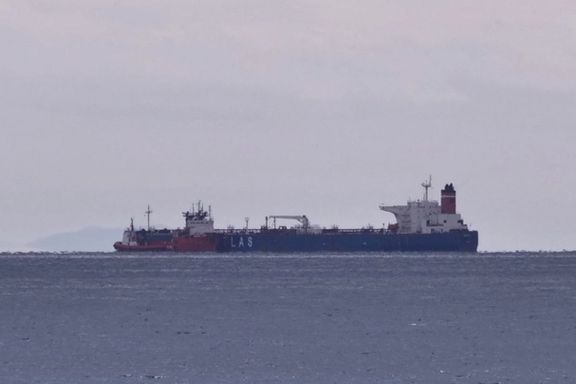
Greece has impounded a Russian oil tanker off the island of Evia, the Greek coastguard said on Tuesday. A US advocacy group said it was carrying Iranian oil.
A Greek shipping ministry official said the 115,500-tonne Russian-flagged Pegas, with 19 Russian crew members, had been seized under European Union sanctions imposed on Russia over the Ukraine crisis.
The vessel was seized near Karystos on Evia’s southern coast, just off the mainland near Athens. Earlier this month, the EU banned Russian-flagged vessels, with exemptions, from its ports.
The US advocacy group United Against Nuclear Iran (UANI), which supports US sanctions against Iran and monitors tanker traffic through satellite tracking, said the Pegas − renamed the Lana in March − had loaded 700,000 barrels of crude oil from Sirri island, Iran, on August 19, 2021. The tanker headed to Greece after trying unsuccessfully to unload the oil at a Turkish port, UANI said.
The Athens News Agency reported that before being seized, Pegas had a breakdown and was being pulled by tugs to Greece's Peloponnese peninsula, where its cargo was to be moved to another vessel, and that during this journey it was forced by rough seas to moor near Karystos, where it was seized by Greek port authorities.
Associated Press reported the seizure was Friday. Reuters cited witnesses Tuesday that the Peags was still moored at Karystos bay, and was told by the Greek coastguard that the tanker’s cargo had not been impounded.
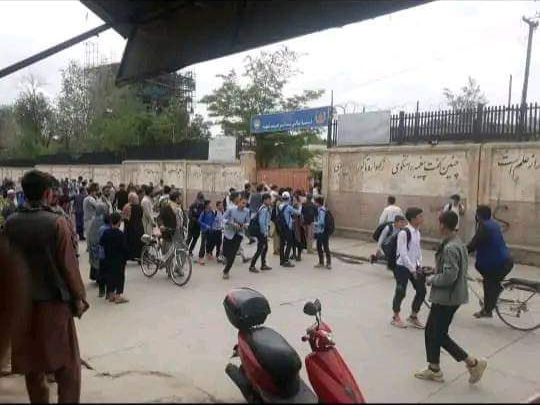
Iran has condemned a terrorist attacks at a boys’ high school and other educational institutions in a Shia-dominated neighborhood of the Afghan capital, Kabul.
In a tweet on Tuesday, Foreign Ministry spokesman Saeed Khatibzadeh censured what he said was Takfiri terrorists shedding the blood of innocent teenagers, urging Taliban officials to identify and punish the perpetrators.
Iranian officials use Takfiri as a vague umbrella term to refer to Sunni dissident or extremist groups and individuals, including the Islamic State (ISIS), alleging that they are organized by western powers and Wahhabis.
Earlier in the day, at least six people were killed, and 25 others were injured after three huge explosions ripped through two educational centers in western Kabul.
A tutoring center in a neighborhood mostly populated by the Shia Hazarah community in the western part of Kabul was targeted with a grenade before two back-to-back blasts targeted a boys’ high school located in the same area.
Initial reports suggested the attack was conducted by suicide bombers, but Kabul police spokesman Khalid Zadran said improvised explosive devices had been placed in backpacks and left outside the school.
No group has so far claimed responsibility for the attack, but the Islamic State militants targeted the area in multiple times between September and December 2021.
Hazaras are an ethnic and religious minority that are frequently targeted by Sunni militant extremists, who regard them as heretics.
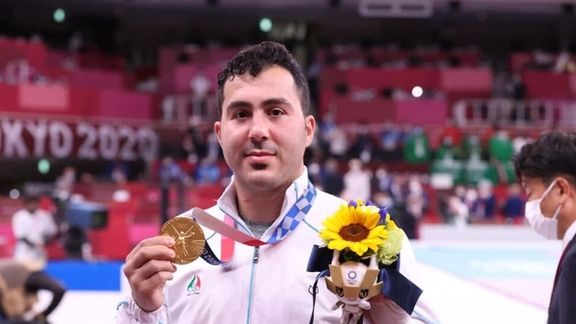
Iranian karate champion Sajjad Ganjzadeh has criticized the Islamic Republic for not allowing athletes to play sports matches against Israeli competitors.
Ganjzadeh said in an Instagram post on Monday that such an approach forces athletes to only attend Asian competitions, in which Israel does not participate.
Urging the authorities not to consider only political issues and their ideological position, the Olympics gold medalist said, "We cannot tolerate this anymore. Not competing is more difficult than competing”.
Iran is a sworn enemy of Israel, calling for its destruction and prohibits sportspeople from playing against Israeli competitors. There is no legislation banning athletes but under pressure from federation officials, they usually lose games intentionally, forfeit matches or claim injury to avoid facing Israelis.
Supreme Leader Ali Khamenei has often praised Iranian athletes who refuse to play against Israelis, and in September 2021 said they should continue to do so even if facing punishment by international sports bodies.
About 30 Iranian athletes in recent years have defected from Iranian national teams and sought asylum in other countries, including Judo champion Saeid Mollaei, Greco-Roman national team wrestler Ali Arsalan, and many others.
Mollaei defected to Mongolia in 2019 after reportedly losing a fight to avoid Israel's Sagi Muki. As a result of the Mollaei case, the International Judo Federation in April 2021 banned Iran's judo teams from international competitions for four years. At the 2020 Tokyo Olympics, Mollaei won a silver medal competing under the Mongolian flag.
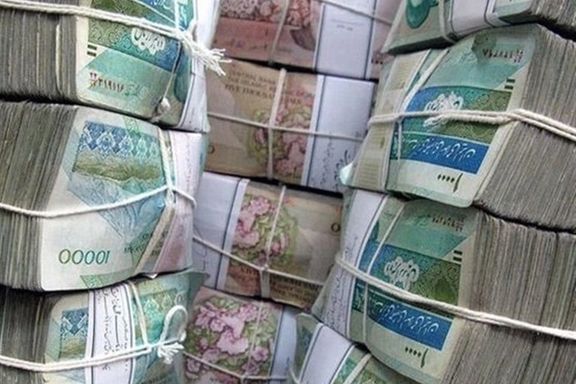
Iran’s liquidity grew by 40 percent from early 2021 to 2022, according to its central bank, as the country continued to print money amid a revenue crunch.
The amount of cash in the economy was more than 3 quadrillion rials (15 zeros) 14 months ago and jumped to 4.6 quadrillion in February this year. In US dollars the amount might not seem staggering, reaching almost $200 billion, only because the rial has fallen more than eightfold against the dollar in the past four years.
The first six months of this period covers the former Rouhani administration and the next six months the presidency of conservative cleric Ebrahim Raisi, who pledged to control liquidity and inflation during his presidential campaign last June.
But little seems to have improved since August when Raisi took office. Inflation continues at the annual rate of more than 40 percent, while prices of food and other essential goods are rising even faster.
The Raisi administration so far says it is trying to deal with the damage done by the previous government, but people and politicians are increasingly skeptical, saying eight months was ample time for the new president to make a difference.
A breakdown of the Iran’s central bank (CBI) numbers issued on Monday shows that almost half of the increase in liquidity occurred since early August, debunking Raisi’s claim that his government has restricted borrowing from the CBI.
The borrowing continued as the government claimed oil exports increased by 40 percent since August, and presumably its foreign currency revenues also jumped. Oil minister Javad Owji announced on Tuesday that in the past 12 months Iran exported $43 billion of crude oil and derivatives. That is almost double of what was sold in the previous year.
Politicians and media ask where is the impact of the additional government income? Why the currency stays low, and inflation continues at the same rate.
The Raisi administration and its supporters say that the government has been repaying debts incurred during Rouhani’s presidency, but it all does not make sense if liquidity is increasing. One official said that since August the government has spent $400 million a month to repay borrowings by the former administration. A Raisi supporter in parliament said on Tuesday that the Rouhani government printed money against unrealized foreign currency income, thus fueling liquidity and inflation. He was referring to Iran’s funds blocked abroad because of US sanctions.
Rouhani’s central bank chief, Abdolnaser Hemmati has challenged Raisi’s officials to a public debate to rebuttal their accusations.
As the government and the parliament struggle to tell the public that the situation will improve, few public figures dare to openly say that Iran’s economic problems cannot be solved without first reaching an agreement with the United States and lifting oil export and banking sanctions.
Negotiations in Vienna have stopped since March, but the main decision maker in the country, Supreme Leader Ali Khamenei insists Iran can solve its economic issue independent of the nuclear talks.
Oil minister Owji also said on Tuesday that only the country’s natural gas sector needs an infusion of $80 billion to be able to increase falling production. In November, he had announced that the oil and gas sector needed $160 billion to retool and rejuvenate itself.